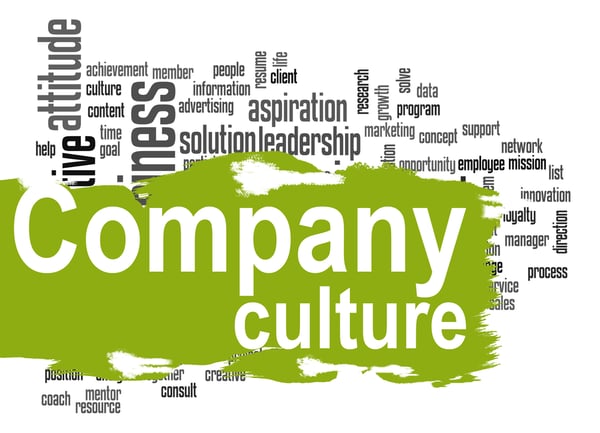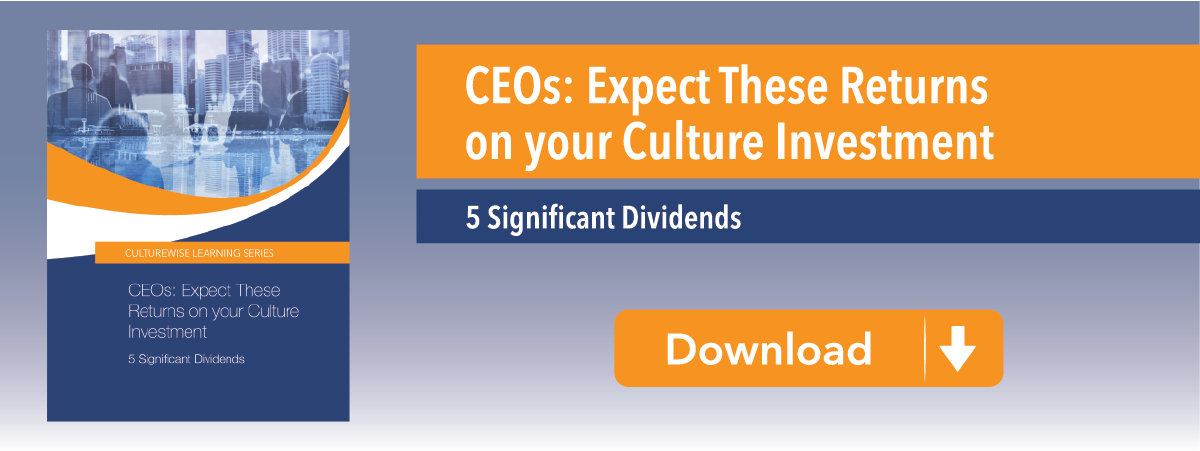
Job Seekers are Looking at Your Company’s Culture: What Do They See?
By Candace Coleman, CultureWise Content Manager
Job shopping has been hot during the past few years, an era now known as “The Great Resignation.” According to LinkedIn, people looked at twice as many position postings in 2021 as in 2019—and the number continues to climb. But despite the abundance of workers angling for better career opportunities, competition remains stiff for employers eager to hire.
The recruitment market is tight because job seekers have higher expectations than ever before. Consequently, many are willing to bide their time until they find the right place to hang their hat.
The current job environment evolved primarily because the pandemic spurred workers to evaluate what they desire from their careers. After months of upheaval, many determined that old work models and hierarchies created unfulfilling or even detrimental work environments. Now millions of job candidates are evaluating prospective employers through a new lens.
It’s time for companies to assess whether they have what it takes to attract the talent they need.
What Job Seekers Want
Historically, a competitive salary and benefits package has been the star attraction for candidates. But the traditional carrot dangled by recruiters has dropped down on the list of current job seekers’ requirements. So long as the compensation is fair, today’s workers are looking for much more from prospective employers. They’re on the hunt for a people-first environment.
As Paola Peralta, Associate Editor of Employee Benefit News, writes in a recent article:
“Gone are the days of employees choosing jobs for salaries—what employees want is to work for a company where they feel heard, valued, and comfortable.”
What are job seekers’ top priorities? LinkedIn reports that 63 percent of those polled cite work-life balance and 60 percent say healthy company culture is paramount.
Work-Life Balance
Most people adapted to remote work models at some point during the pandemic. Many discovered their work flourished while having much more flexibility to tend to personal issues like caring for children, elders, and pets. They also saved money and time by forgoing daily commutes.
When employers began to reel people back to the physical workplace in 2021, many of their staff members began to seek jobs where they could retain their newfound flexibility. Companies looking to hire took note; since 2019, LinkedIn recorded:
- An 83 percent increase in job posts mentioning flexibility
- Mentions of flexibility on companies’ LinkedIn profiles soared 343 percent
Willingness to operate with remote and hybrid teams is a big plus, but offering flexibility isn’t enough. Companies must also effectively function within these evolving work models and meet employees’ needs in new ways. Peralta explains,
“To stay in line with the rise in demand for flexible jobs, employers should be establishing guidelines on how to treat remote workers, creating a level playing field for all employees and reinforcing social bonds among coworkers with virtual events.”
Success in this area is closely tied to the strength of the company’s culture. CEOs need to ensure that their culture provides a supportive infrastructure facilitating communication, relationship, and belonging. These critical elements within an organization make remote and hybrid teams viable.
Company Culture
Along with impacting the level of success with remote and hybrid workers, a strong company culture directly influences every other aspect of an organization. A vibrant culture helps employees excel and grow and is the driving force behind their organization’s ability to remain competitive in a crowded market.
Consequently, prospective recruits carefully evaluate a company’s culture before signing on the dotted line. If they suspect an artificial “on paper” culture or one that appears misaligned, they’ll move on to more appealing opportunities.
Studies authenticate this trend. For example, in a recent Cappfinity/YouGov survey, 80 percent of job seekers said it’s important to understand a company culture before accepting an offer.
3 Things Company Culture Needs to Attract Talent
Organizations that hold zoom happy hours or let their employees bring their pets to work are trying to be appealing. But they are missing the point about what it takes to develop a great work environment, and savvy members of the Great Resignation see right through these gimmicks.

Instead of feel-good perks, today’s job candidates are looking for things that will make their work more purposeful and satisfying. And three critical areas comprise the trifecta of sought-after culture:
- Transparency
- Respect
- Growth
Transparency
When evaluating prospective employers, job seekers want to discern a vibrant, supportive workplace culture. They will see past rosy pictures portrayed in recruiting tools and websites and investigate deeper to find out what current and past employees really think about an organization.
If companies want to project a strong culture, they must walk the talk.
After an organization builds a strong culture, it will develop the kind of reputation that draws job seekers. But prospective hires won’t rely on a company’s public accolades alone as they make up their minds about working there. They’ll come prepared with strategic questions if they follow up with the interview process and want to see for themselves that the company is delivering the culture it promises.
Knowing this, employers should make their culture the centerpiece of the recruitment process. They’ll have a much better chance of convincing people to join their team if they can authentically convey how their people work and thrive together.
Beyond offering a clear view of the work culture, prospects also want to know how the company builds transparency into the culture itself. They’ll be assessing several factors:
- Communication. Candidates will want to discern if team members and managers share information to facilitate collaboration. And they’ll be eager to learn how well leaders communicate expectations, a skill that significantly impacts an employee’s ability to deliver results.
- Connection. People want to understand how their role fits into the organization and helps the company achieve its goals. Hiring managers who take the time to convey the value recruits add to the team score big points with people seeking meaningful careers.
Respect
A significant number of people participating in Great Resignation are leaving their jobs because they don’t feel respected. Employees are no longer willing to tough out poor working conditions in exchange for a paycheck.
An analysis prepared by MIT Sloan Management Review shows that the leading elements contributing to toxic culture are failing to promote diversity, equity, and inclusion, unethical behavior, and general disrespect of employees.
It’s not enough for prospective employers to say these things aren’t part of their workplace. Instead, they must demonstrate that their culture will tolerate no form of disrespect.
Measures they can take include:
- Infusing their company culture with behaviors that bring their DE&I policies to life every day
- Anchoring workplace culture with integrity, empathy, and strong relationships among team members
- Building a system of meaningful acknowledgment and recognition
Potential recruits will want to make sure these characteristics are in place before joining the team. And employers must be ready to demonstrate they can deliver a culture of respect to remote and hybrid workers, who often feel left out and unseen.
Growth
Stagnation is another significant driver of the current turnover trend. People want to build skills to advance their careers and be challenged to stretch their capabilities. As a result, they’re walking away from dead-end jobs and gravitating to companies offering continuous learning opportunities.
Formal education and training programs are a big attraction for upwardly mobile workers. But growth paths also can and should be woven into company culture to provide ambitious workers with ongoing support.
A strong culture program gives managers the tools to coach their team members effectively. It allows them to bring out the best in people and help them develop the soft skills so critical for career success.
The culture should also include a mentor system so recruits can benefit from veteran employees’ knowledge and guidance. And regularly scheduled one-on-one sessions give managers a chance to offer consistent, productive feedback to employees.
To be competitive in today’s recruitment market, employers should make continuous learning and improvement a central focus of their culture. It should be clear to job candidates that developing their skills will be an everyday part of their experience at the company.
Strong Company Culture Draws Job Hunters
LinkedIn’s 2022 Global Talent Trends report stresses the need for companies to fine-tune or overhaul their culture and then showcase it to meet the expectations of today’s job seekers. Their Chief People Officer, Teuila Hanson, has this advice for employers looking to attract top talent:
“Company culture is swiftly evolving, and to keep up, organizations must innovate and think progressively. We have this singular opportunity to create the culture and circumstances that will allow each employee to do their best work and to lead their best life.”
Promoting a culture that helps employees thrive is the most effective means to attract talent in a highly competitive recruitment market. David J. Friedman created the CultureWise system to help business leaders build and sustain the dynamic culture sought after by discerning job candidates.
This innovative program provides organizations with expert assistance, critical resources, and a step-by-step method to build a powerful company culture. Schedule a call with a CultureWise representative to learn how your company’s culture can become a magnet for job hunters.
And don’t forget to sign up for a free subscription to Culture Matters to receive insightful articles, videos, podcasts, and educational webinar opportunities every week.


